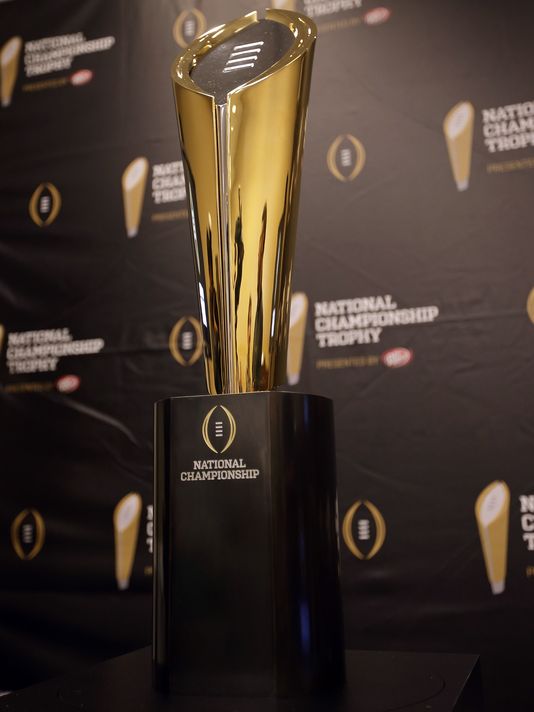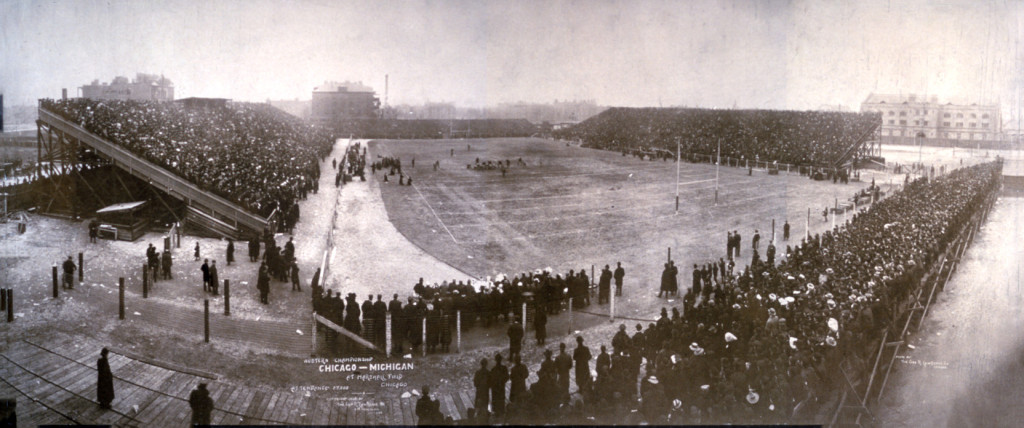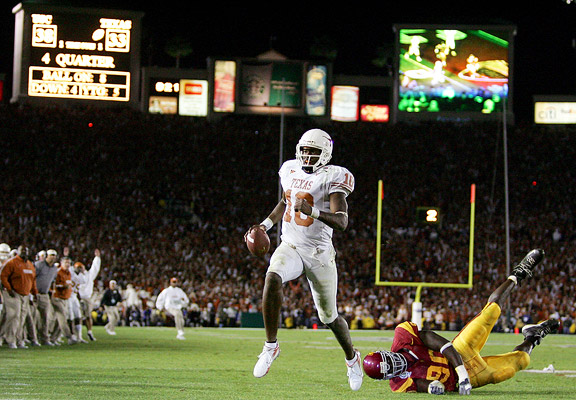
Somehow both phallic and vaginal. (Image via)
Football is on TV right now. Live football. It doesn’t count (Hall of Fame preseason game). It’s not even the right level of competition for my tastes (NFL). But football is on. So it’s time to start. I’m going to cover football in more depth for The Recorder this fall because I care more than I should. Specifically, I’m going to do my best to bring you a weekly picks column for the biggest college football games of the coming week and a NFL game or two, as well. Each week a different guest predictor will join me, usually someone from The Recorder staff, but sometimes not. We shall see.
Right now, though, it’s early August. There is still an awfully long month until games begin in earnest. So I’m going to pass that time with a few columns about topics that will be important this coming season. The most depressing of these will be about the very real risk that playing football can destroy a man’s future well-being. Another will be about the monstrous qualities of the NCAA, a cartel devoted to its own power and wealth above all else. They are definitely the worst sort of predators, no matter how many times they pretend to care about the students that they grossly exploit. I’ll also try to preview the Big Ten, the league of the Midwest (and East Coast now…ugh). First, though, let’s start with a relatively benign issue: there’s a new way of crowning a national championship in college football!
The very first American football game was played in 1869 between Rutgers and Princeton. Since then, 58 different schools have won or claimed at least one national championship. Among that list are some givens (Notre Dame with 22), some oddities that need explanation (Princeton leads the way with 28!), and some that defy even me (What is Washington & Jefferson and how did it win a national title?). But in all that time the idea of a national championship has been more ephemeral than real because there was no agreed upon method for winning one.
A lot of early seasons were unorganized, with students just sort of traveling around and playing other schools from their region. The squad with the best record would be declared best in the nation, in much the way that the World Series claims to represent all of humanity’s baseball squads despite only being open to American professional teams. (Yes, and Toronto aka the Washington & Jefferson of North American professional leagues.) Even after the NCAA was created in the middle of the 20th Century and the national polls of coaches and sportswriters brought structure to the game there was no tournament for a championship established. The reason, as always with college sports, was small-minded greed. The bowl games had been established in force in the 30’s. They staged post-season exhibition games between the nation’s best teams, and didn’t want to give up that income in favor of schools hosting home games in a playoff tournament ala the professional leagues. The NCAA had to accept this because they had relatively little power over their member schools.

Michigan v. Chicago determined the 1905 title. Despite outscoring all-other opponents 495-0, the Wolverines lost this game 2-0. Thus began National Championship controversy. (Image via)
There was also the issue that college football simply has a hell of a lot more teams than any professional leagues. Currently 125 different schools field a team in the NCAA’s highest level of play (FBS), with hundreds more in divisions under that. Each school plays a maximum of 13 games by the end of the regular season. To state the obvious, there’s no way they can all play each other once. Hell, these days most schools won’t even play the majority of their conference-mates more than once or twice a decade. I’ll grumble about that in later column. So the inertia or the bowl system and the logistical headache or culling an acceptable playoff list meant that the national championship was handed out by post-bowl votes from the two major polls. If two top-ranked teams did not play, which was likely considering conferences usually tied their champions to specific bowls, and both won those games, the polls could and did split between different teams. My beloved Michigan split the 1997 title with Nebraska in just this manner. After that split the suits in charge decided to “do something.”
That something was the Bowl Championship Series. This does not speak well of the suits, but they’re still in charge. The BCS endeavored to guarantee an undisputed champion by picking the top two teams in the country after the regular season and matching them in a honest-to-goodness title game. The trouble came in determining which two teams would be chosen to play. The formula was initially an aggregate of rankings from the coaches’ poll, AP sportswriters’ poll, and some mysterious computer formulas. This system came under fire instantly. First, the computers were accused of screwing with the expected match-up too often. Then the AP poll withdrew because its participants thought the system a sham (which it was). This regularly resulted in match-ups that vacillated between perfection (2006’s classic Rose Bowl between Texas and USC) and vomitous (2012’s rematch between LSU and their cross-divisional rival Alabama, a team they had defeated just 2 months prior). It was that 2012 rematch that dynamited the BCS for good, since the suits finally awoke to what fans and writers had been saying for years: declaring a champ after one game with seemingly arbitrary participants is often unsavory and unsatisfying.

Hopefully every future championship will end as well as this one. (Image via)
So now, at long last, we have the College Football Playoff. (Trademarked. Seriously, that is trademarked. I hate America so much sometimes.) The new playoff will expand the championship math from two teams picked arbitrarily by mysterious math to…four teams plunked into a two-round playoff by a mysterious selection committee that doesn’t have to reveal its process. This counts as progress in college football. (Did I mention hating America so much sometimes? Still true). The semi-final games will be held on New Year’s Eve and New Year’s Day, with the victors facing off a week later. The game sites will rotate between a handful of bowl sites, with Jerry Jones’ unholy cathedral to hubris in greater Dallas hosting the inaugural playoff championship game. So the system is fixed, I guess. For now. At the very least the playoff will be new. The process will be intriguing, and it will absolutely still be controversial. But it will also be dragging college football up to speed with a competitive structure known to the rest of the sporting world for over a century. Like I said, progress. I’ll take it.





